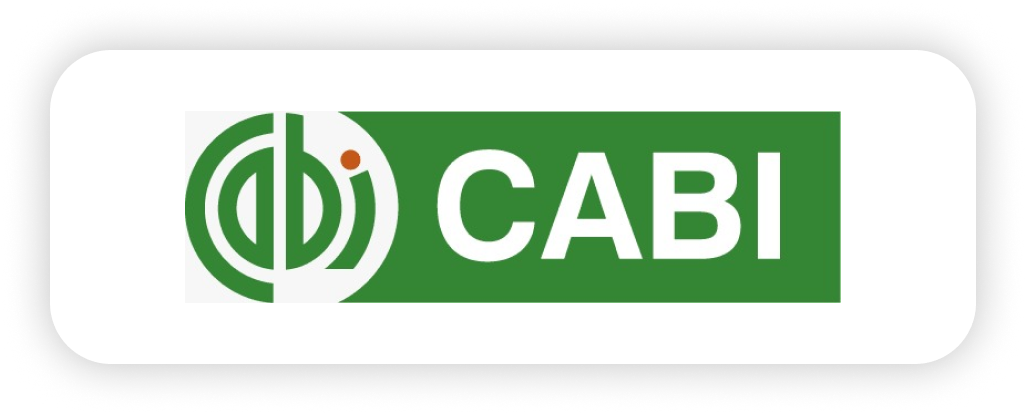Utilization of Blockchain Technology in Increasing Transparency and Effectiveness of Financial Audits
Keywords:
Blockchain, Financial Audit, Transparency, Audit Effectiveness, Smart Contract, Continuous AuditAbstract
Financial audits serve as an important tool to ensure that financial statements are prepared accurately and that organizations fulfill their responsibilities to stakeholders. However, traditional audit approaches often face various obstacles, such as delays in accessing information, potential data manipulation, and a lack of transparency in their implementation. Amid these challenges, blockchain technology has emerged as a promising alternative to encourage a more open, efficient, and reliable audit process. Through a literature review, this paper explores the extent to which blockchain technology can be utilized to improve the quality of transparency and efficiency in the implementation of financial audits. Through the Systematic Literature Review method, the results of the study show that the use of blockchain in audits can provide direct (real-time) audit evidence, minimize the risk of data manipulation, and support the implementation of continuous audits. However, there are a number of obstacles that need to be overcome, including infrastructure readiness, personal data protection, and a regulatory framework that is not yet fully supportive. Therefore, this article provides several recommendations aimed at auditors, management, and regulators so that they can optimize the use of blockchain in a more transparent and accountable reporting and audit system.
References
Alarcon, J. L., & Ng, C. (2022). Continuous auditing and blockchain: The future of audit. Auditing: A Journal of Practice & Theory, 41(2), 101–118. https://doi.org/10.2308/AJPT-2021-042
Alles, M., & Gray, G. L. (2020). The impact of blockchain technology on the audit profession. Current Issues in Auditing, 14(2), A1–A10. https://doi.org/10.2308/ciia-52660
Beck, R., Müller-Bloch, C., & King, J. L. (2018). Governance in the blockchain economy: A framework and research agenda. Journal of the Association for Information Systems, 19(10), 1020–1034. https://doi.org/10.17705/1jais.00518
Bushman, R. M., & Smith, A. J. (2003). Transparency, Financial Accounting Information, and Corporate Governance. Economic Policy Review.
Coyne, E. J., & McMickle, P. L. (2017). Can blockchains serve an accounting purpose? Journal of Emerging Technologies in Accounting, 14(2), 101–111. https://doi.org/10.2308/jeta-51949
Dai, J., & Vasarhelyi, M. A. (2017). Toward blockchain-based accounting and assurance. Journal of Information Systems, 31(3), 5–21. https://doi.org/10.2308/isys-51804
Deepublish. (2024). Tahapan Systematic Literature Review & Contohnya. https://penerbitdeepublish.com/systematic-literature-review/
Deloitte. (2016). Blockchain Technology: A Game-Changer in Accounting
Deloitte. (2016). Blockchain technology: A game-changer in accounting? Retrieved from https://www2.deloitte.com (pp. 1–12)
Ensen, M. C., & Meckling, W. H. (1976). Theory of the Firm: Managerial Behavior, Agency Costs and Ownership Structure.
ICAEW (Institute of Chartered Accountants in England and Wales). (2018). Blockchain and the future of accountancy. Institute of Chartered Accountants in England and Wales. Retrieved from https://www.icaew.com (pp. 1–18)
Jabon, C. L., & Ahmed, K. (2020). Real-time audit through blockchain: A conceptual model. Journal of Business and Accounting, 13(1), 45–58.
Jayawarsa, A. K., Saputra, K. A. K., & Narindra, N. M. (2024). Strengthening Ecotourism to Improve Quality of Life in Ubung Kaja Village through Creativity, Order, and Cultural Values. Community Services: Sustainability Development, 2(1), 109-114.
Kitchenham, B. (2014). Procedures for Performing Systematic Reviews. Keele University Technical Report, 33(2004), 1–26.
Möller, A., & Stotz, L. (2023). Blockchain Technology in the Audit Process: Opportunities and Challenges. Journal of Accounting and Organizational Change, 19(1), 1–21
Möller, A., & Stotz, L. (2023). Blockchain technology in the audit process: Opportunities and challenges. Journal of Accounting and Organizational Change, 19(1), 1–21. https://doi.org/10.1108/JAOC-02- 2022-0027
O’Leary, D. E. (2018). Configuring blockchain architectures for transaction information in blockchain consortiums: The case of accounting and supply chain systems. Intelligent Systems in Accounting, Finance and Management, 25(3), 138–147. https://doi.org/10.1002/isaf.1425
Pimentel, E., & Boulianne, E. (2020). Blockchain in Accounting Research: Current Trends and Future Opportunities. Journal of Emerging Technologies in Accounting, 17(1), 91–111.
Pimentel, E., & Boulianne, E. (2020). Blockchain in accounting research: Current trends and future opportunities. Journal of Emerging Technologies in Accounting, 17(1), 91–111. https://doi.org/10.2308/JETA-52685
PwC. (2018). Blockchain and Internal Audit: The What, Why and How. Retrieved from https://www.pwc.com (pp. 1–20)
Rozario, A. M., & Vasarhelyi, M. A. (2018). How blockchain technology could enhance audit quality. The CPA Journal, 88(6), 24–29.
Sanjayani, M. W. G. H., Saputra, K. A. K., & Surasmi, I. A. (2024). The Influence of Implementation of Sustainability Accounting and Management Participation on Employee Performance in the Bina Sejahtera Badung Employee Cooperative. International Journal of Environmental, Sustainability, and Social Science, 5(1), 147-153.
Saputra, K. A. K., Subroto, B., Rahman, A. F., & Saraswati, E. (2022). Eco-efficiency and energy audit to improve environmental performance: An empirical study of hotels in Bali- Indonesia. International Journal of Energy Economics and Policy, 12(6), 175-182.
Saputra, K. A. K., & Laksmi, P. A. S. (2024). The Influence of Green Governance, Implementation of Energy Accounting, and Green Human Resource Management on Sustainability Performance: An Empirical Study in the Hospitality Industry in Bali. JIA (Jurnal Ilmiah Akuntansi), 9(1), 113-136.
Schmitz, J., & Leoni, G. (2019). Accounting and auditing at the blockchain technology frontier. Accounting, Auditing & Accountability Journal, 32(1), 268–288. https://doi.org/10.1108/AAAJ- 06-2018-3445
Smith, A., & Castonguay, J. (2021). The Role of Blockchain in Enhancing Audit Evidence. International Journal of Auditing, 25(2), 217–230.
Smith, A., & Castonguay, J. (2021). The role of blockchain in enhancing audit evidence. International Journal of Auditing, 25(2), 217–230. https://doi.org/10.1111/ijau.12201
Tapscott, D., & Tapscott, A. (2016). Blockchain revolution: How the technology behind Bitcoin is changing money, business, and the world. New York: Penguin. (pp. 1–344)
Wadsworth, A., & Smith, M. (2022). Auditing in the Age of Blockchain: Challenges and Policy Implications. Accounting Perspectives, 21(3), 349–369
Wadsworth, A., & Smith, M. (2022). Auditing in the age of blockchain: Challenges and policy implications. Accounting Perspectives, 21(3), 349–369. https://doi.org/10.1111/acpt.12310
Xu, X., Weber, I., & Staples, M. (2019). Architecture for Blockchain applications. Springer. https://doi.org/10.1007/978-3-319-99058-3 (pp. 1–183)
Yermack, D. (2017). Corporate governance and blockchains. Review of Finance, 21(1), 7–31. https://doi.org/10.1093/rof/rfw074
Downloads
Published
Issue
Section
License
Copyright (c) 2025 I Made YUDIARTHA, I Komang Agus Adi SASTRAWAN, I Made Dwi ANDIKAYANA , Ilham MAULANA (Author)

This work is licensed under a Creative Commons Attribution-NonCommercial 4.0 International License.
Creative Commons Attribution-NonCommercial 4.0 International License.





















